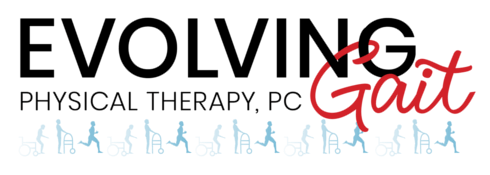Struggling with Meniere’s Disease? Find Effective Relief with Physical Therapy!
Do you find yourself getting dizzy doing everyday tasks, such as getting out of bed or walking down the driveway to get the mail? Do you find it hard to focus on one thing for long periods of time? Have you noticed a recent, unexplained hearing loss? If so, you may be experiencing the symptoms of Meniere’s Disease.
Meniere’s Disease is a disorder of the inner ear. It is caused by a buildup of fluid and fluctuating pressures within the ear, resulting in blocked gravitational messages to the brain. This can result in an imbalance known as vertigo, in addition to tinnitus, commonly referred to as “a ringing of the ears,” and even hearing loss in extreme cases.
Fortunately, we are here to help. Our innovative care strategies at Evolving Gait Physical Therapy will help you find quick relief. If you believe you may be experiencing common symptoms of Meniere’s Disease, contact our office today to schedule a consultation.
Meniere’s Disease, defined
As stated by Healthline,
“Meniere’s disease is a disorder that affects the inner ear. The inner ear is responsible for hearing and balance. The condition causes vertigo, the sensation of spinning. It also leads to hearing problems and a ringing sound in the ear. Meniere’s disease usually affects only one ear.
The National Institute on Deafness and Other Communication Disorders (NIDCD) estimates that 615,000 people in the United States have Meniere’s disease. Around 45,500 people are diagnosed each year. It’s most likely to occur in people in their 40s and 50s.”
Meniere’s Disease can greatly affect your daily life, but fortunately physical therapy can help. To learn more about our services and how they can benefit you, don’t hesitate to set up a consultation with one of our highly trained and dedicated physical therapists.
How can I tell if I have Meniere’s Disease?
Vertigo is the main symptom of Meniere’s Disease; however, it can also be accompanied by additional symptoms. Due to the buildup of fluid and pressure in the inner ear, the most common additional symptoms are tinnitus and hearing loss.
Complete deafness is uncommon with Meniere’s Disease, but it can occur if the symptoms persist long enough. Because of this, it is important to contact us as soon as possible if you believe you may be living with Meniere’s Disease.
Some other symptoms that can arise with Meniere’s Disease include:
- Dizziness – this is the most commonly reported symptom of vertigo, also referred to as swaying, spinning, tilting, or even the sensation of being pulled to one direction.
- Nystagmus – this is the phenomenon of experiencing uncontrollable eye movements, commonly referred to as “eye jerks.”
- Difficulty walking and hearing.
- A feeling of pressure within the ear.
- Headaches.
- Nausea.
- Vomiting.
- Fatigue.
- Sweating.
- Fainting.
How can I help relieve my Meniere’s Disease symptoms?
There are some steps you can take on your own to find relief for Meniere’s Disease and prevent furthering the severity of the condition. Some lifestyle factors can aggravate the symptoms and make them much worse.
Some helpful tips for avoiding this include:
- Maintaining a low sodium diet.
- Managing allergies with allergy medication.
- Staying away from alcohol, nicotine, and caffeine.
- Taking diuretics, or “water pills,” to decrease the amount of pressure and fluid buildup in your ear.
- Taking anti-dizziness or anti-nausea medication to decrease the risk of falling or vomiting.
- Participating in physical therapy or vestibular rehabilitation treatments to relieve your condition and improve your balance.
Of course, contacting a physical therapist is the first step when finding relief for Meniere’s Disease.
In addition to the tips you can do on your own, your physical therapist will provide an individualized treatment plan for your specific needs, so you can find relief as quickly as possible. Contact us today to find out more.
Physical therapy and Meniere’s Disease
It can undoubtedly be difficult to determine when to seek treatment for something. It is true that the symptoms of Meniere’s Disease can sometimes come and go on their own, but if the condition is not treated the symptoms can always return, sometimes much worse than they were the first time around.
Without treatment, it is also possible for Meniere’s Disease to progress and result in more severe risks, such as full hearing loss. Why take the risk? If you believe you may have the symptoms of Meniere’s Disease, it is important to consult with a physical therapist immediately.
Physical Therapy is a common treatment for Meniere’s Disease, and our team is trained to help alleviate any dizzying, lightheaded, or physically unstable symptoms you may be experiencing.
For Meniere’s Disease, it is likely that your physical therapist will recommend vestibular rehabilitation. This form of physical therapy focuses on the vestibular system, located within the inner ear, and the ways in which we can strengthen it.
The vestibular system sends the gravitational messages to your brain about your body movements, and focusing on balance-specific exercises can help in strengthening this system, thus diminishing the effects of Meniere’s Disease. By retraining the vestibular system through vestibular rehabilitation treatments, your physical therapist will be able to help you relieve your symptoms and decrease their risk of return.
Find relief today!
Do you believe you may be living with Meniere’s Disease? If so, don’t hesitate to contact us today. We’ll help you get back on your feet.


